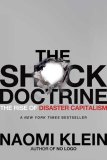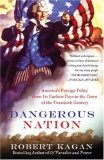Summary | Excerpt | Reviews | Beyond the book | Read-Alikes | Genres & Themes | Author Bio

The Uses and Abuses of History
by Margaret MacMillanMargaret MacMillan, an acclaimed historian and “great storyteller” (The New York Review of Books), explores here the many ways in which history – its values and dangers – affects us all, including how it is used and abused. The New York Times bestselling author of Paris 1919 and Nixon and Mao reveals how a deeper engagement with history in our private lives and, more important, in the sphere of public debate can guide us to a richer, more enlightened existence, as individuals and nations. Alive with incident and figures both great and infamous, including Robespierre, Adolf Hitler, Winston Churchill, Mao Zedong, Karl Marx, Henry Kissinger, Bill Clinton, Tony Blair, and George W. Bush, Dangerous Games explores why it is important to treat history with care.
History is used to justify religious movements and political campaigns alike. The manipulation of history is increasingly pervasive in today’s world. Dictators may suppress history because it undermines their ideas, agendas, or claims to absolute authority. Nationalists may tell false, one-sided, or misleading stories about the past. Political leaders might mobilize their people by telling lies. Adolf Hitler, for instance, blamed the Jews for Germany’s humiliation at Versailles and its defeat in World War I. It is imperative that we have an understanding of the past and avoid the all-too-common traps in thinking to which many fall prey–as MacMillan skillfully illuminates. This brilliantly reasoned work will compel us to examine history anew, including our own understanding of it, and our own closely held beliefs.
There are dozens of historians who have criticized the efficacy of history as an authority; In this short volume, MacMillan does this with wit and an accessible, engaging style. Drawing upon a wealth of historical examples, MacMillan reminds the reader that history is malleable, and too often distorted for political and sociological gain...continued
Full Review
 (620 words)
(620 words)
(Reviewed by Derek Brown).
Most of us take it for granted that every person on earth is the citizen of a nation
state, but this is a relatively recent concept.
Take Europe for example. Although there had long been empires that stretched across large tracts of land, up until the Middle Ages Europe was essentially made up of multiple city states. Indeed, the modern day passport is believed to have begun as a medieval document required to pass through the gate ("porte") of a city wall. In general, documents were not required when arriving at sea ports, which were considered open trading points.
It was not until the 15th century that the concept of a national border came into being - triggered, in part, by the Hundred Years War (1337-1453), which started as a ...

If you liked Dangerous Games, try these:

by Naomi Klein
Published 2008
The bestselling author of No Logo exposes the rise of "disaster capitalism" and destroys the myth of the global "free market".

by Robert Kagan
Published 2007
From the author of the immensely influential and best-selling Of Paradise and Power—a major reevaluation of America’s place in the world from the colonial era to the turn of the twentieth century.